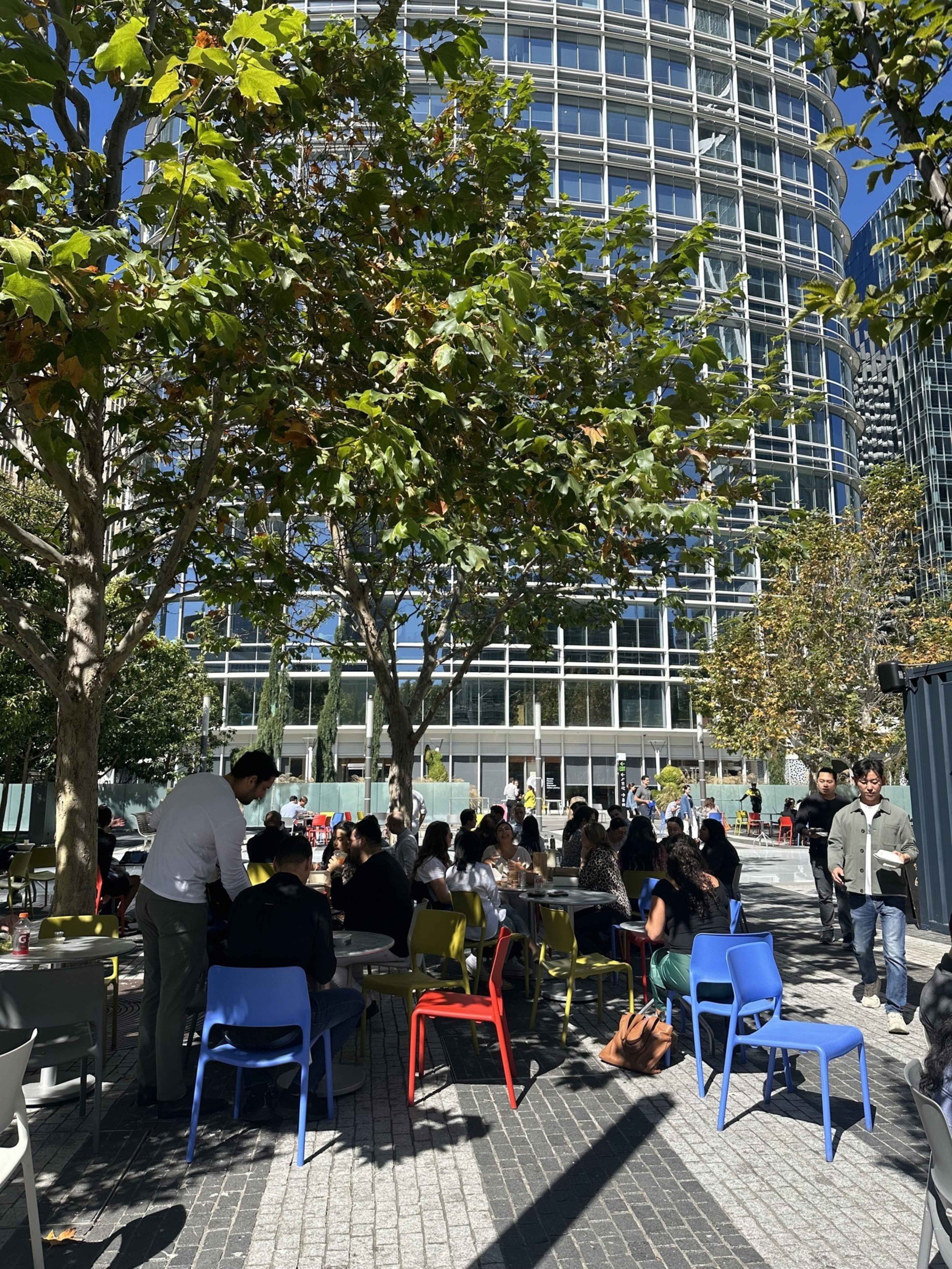Employees at Andytown Coffee Roasters in Salesforce Park have gotten used to easing into the workweek with a slow Monday morning. But on the last day in September, the line to order coffee nearly reached the door, and cooks were working overtime with the panini press.
One barista reported toasting more breakfast sandwiches than on any day in recent memory — let alone a Monday.
Similar scenes played out around the neighborhood as local businesses buzzed, with their owners thanking a major tech company for bringing workers back to the office. Salesforce, the city’s largest private employer, has begun requiring most San Francisco employees to come to the office four to five days a week.

A steady stream of employees, many donning Salesforce backpacks, marched down sidewalks that have been more or less empty on Mondays since the pandemic struck. Traffic jams and a cacophony of honks filled the streets in SoMa, where Salesforce occupies multiple buildings, including Salesforce Tower. Commuters piled out of buses and into Salesforce Transit Center, the regional hub located below Salesforce Park.
“It’s a big thing they are coming back to work,” said Dario Barbone, owner of Aurora Centro, an Italian deli in Salesforce Park. Unlike many tech companies, Salesforce does not have an in-house cafeteria, which meant local eateries thrived during the workday lunch rush before the pandemic. Now that workers are back, Barbone says, “it’s the best-case scenario for us.”
This week’s return-to-office mandate, which applies to select Salesforce employees in sales, workplace services, data-center engineering, and on-site support, reverses a broad shift to remote work during the pandemic that saw blue-chip tech firms in San Francisco retreating en masse from downtown.
The city is still reeling from the pullback. More than a third of offices in San Francisco are vacant, according to preliminary third-quarter data from real estate firm JLL.
The downturn has hurt local businesses. But on Monday, lines of hungry workers waited for a salad or sandwich at downtown eateries.
At Tender Greens next to Salesforce West, the lunch line went out the door. “It’s never this busy,” an employee yelled over the crowd as she packed a salad for pickup.
Down the street at Ebiko, a sushi spot that opened two weeks ago, Salesforce employees crowded in at lunchtime to choose from a variety of poke bowls and sushi platters. Owner David Liu made the decision to open a downtown San Francisco location following the success of his Oakland restaurant, based on his theory that employees and companies would eventually return to the area.
“This is the prime location to be in,” said Liu, adding Monday that he had recognized customers who used to frequent his Oakland location returning to their offices in downtown San Francisco.

“If you had a choice — and there’s so much vacancy — you’re going to the center which is here instead of deeper into SoMa or near the Civic Center,” he said. “I want to see it come back to life.”
When asked for comment, a Salesforce spokesperson referenced the company’s hybrid work guidelines that “focus on in-person connection, while recognizing the value of work away from the office.”
Following Salesforce’s return to office and Amazon’s recent announcement that employees are expected to spend five days a week in the office (opens in new tab) beginning in January, other Big Tech firms are expected to introduce similar policies.
“These are two huge technology companies, so I wouldn’t be surprised if others followed suit,” said Ramesh Srinivasan, a professor at UCLA who studies the future of work. “The dominos are falling on the Zoomifying of our lives.”
Office attendance this year in San Francisco has averaged 43%, according to data from access-card company Kastle Systems. But post-pandemic work patterns have settled into a clear split between higher attendance near the middle of the week and lower attendance on Mondays and Fridays.
In contrast to nearby businesses celebrating their returned customer base, Salesforce employees may be less enthused about the return to the office. Most hurried into the company’s eponymous tower without giving an opinion on their new work schedule, but one just shook their head and audibly groaned.
